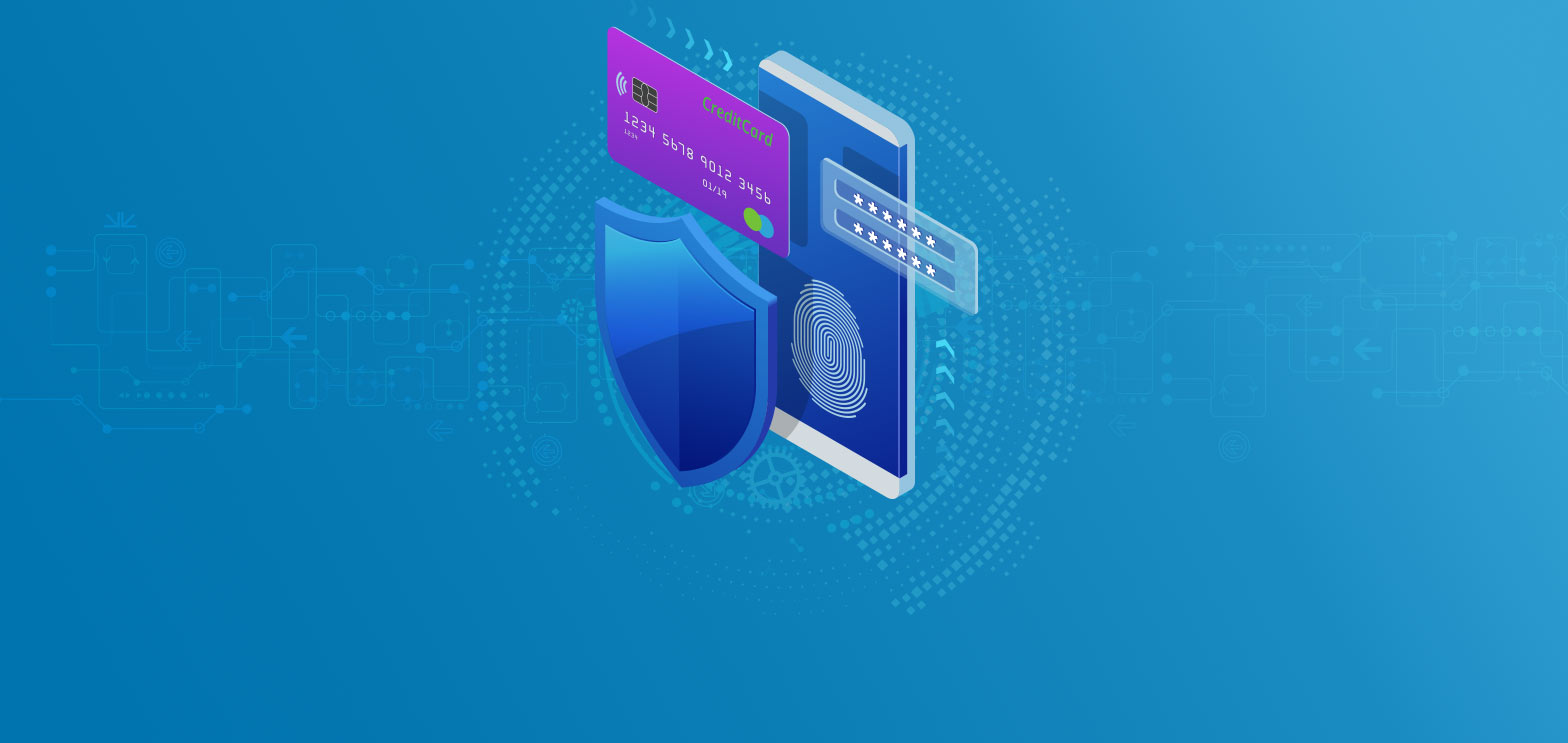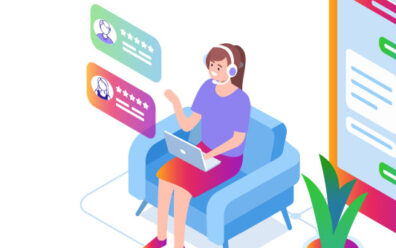Call Center Outsourcing9 Minute Read
How to Improve Call Center Security
Europe’s wide-reaching General Data Protection Regulation (GDPR) has led to millions of dollars of fines levied on American companies for failing to comply with the EU’s consumer data protection policies. Now, U.S. laws are following that model in their own bid to mitigate the growing risk of widespread data breaches, which have grown in both frequency and scale in the most recent years.

The most prominent of these laws is the California Consumer Privacy Act (CCPA), which has been in effect since January 1, 2020. Designed to provide stricter consumer data protection policies while also holding executives and boardrooms more directly responsible for their organization’s failure to achieve “reasonable security”, the CCPA is being followed by similar moves by other states (You can find a handy rundown of current state cybersecurity regulations here).
Could your business run afoul of the CCPA? Though the CCPA specifically concerns California citizens, any business of a certain size that has an online presence available in that state can technically be held in violation, making the law virtually global (Unsurprisingly given this new legal risk, cloud providers like Microsoft were among the first to announce their plans to comply with the law).
Ground zero for the battle over consumer data privacy are the communications touchpoints each business has with its customers. Over-the-phone interactions, email correspondence, social media mentions, the auto-chat function on your website — each represents a potential area of risk.
And because a certain level of consumer data gathering and analytical analysis is necessary to ensure a premium customer experience (CX), businesses must also be careful to keep their internal processes and data storage activities fully in compliance, too. This requires permission from customers in the form of online consent agreements — now also mandatory as part of the CCPA (following, again, the GDPR model).
The major challenges posed by consumer data protection in the modern era have become fairly clear:
- How to make sure you’re maintaining call center security as customer touchpoints increase?
- How to ensure security as you track and utilize more and more data yielded by those touchpoints?
- How can you be sure you’re protected against the latest cyberattack methods?
- How can you ensure your at-home workforce is just as protected against the risk of data breaches as your on-site infrastructure?
9 Essential Elements for Call Center Security
These are big questions, and making sure you’re covered involves a series of foundational steps. Indeed, giving yourself the operational footprint to comply with the CCPA and other laws requires a series of well-known steps:
1. Invest in Technology
Invest in technology sophisticated enough to accomplish all the tasks of a modern contact center, while also offering compatibility with the latest security features, patches, and anti-hacking safeguards. Technology can significantly improve call center security by providing various tools and measures that enhance data security, prevent fraud, and ensure compliance with regulations. Here are some ways in which technology can improve call center security:
- Two-Factor Authentication: This technology can prevent unauthorized access to sensitive data by requiring a second factor for authentication, such as a fingerprint or a one-time password sent to the user’s mobile device.
- Voice Biometrics: This technology can be used to verify the identity of the caller by analyzing their voice patterns, preventing identity theft or social engineering attacks.
- Encryption: Call centers can use encryption to secure sensitive data during transmission and storage. This technology can prevent hackers from intercepting and accessing customer information.
- Firewall Protection: Firewalls can prevent unauthorized access to call center systems and protect against malware and other cyber threats.
- AI-Powered Fraud Detection: By analyzing large volumes of data in real-time, AI-powered fraud detection systems can identify and prevent fraudulent activities, such as phishing and social engineering attacks.
- Compliance Monitoring: Technology can be used to monitor call center agents’ compliance with regulatory requirements, such as PCI DSS, HIPAA, and GDPR, to ensure that customer data is being handled appropriately.
2. Employ IT Expert(s)
Employ IT experts who understand how to keep this technology — both the hardware and the software — in a state of constant readiness against data breaches. IT experts play a crucial role in improving call center security from a technical standpoint. These professionals are responsible for designing, implementing, and maintaining the call center’s security infrastructure, including hardware, software, and network security systems. IT experts can improve call center security by:
- Conduct regular security audits to identify vulnerabilities and potential threats to the call center’s security. These audits can help to ensure that the call center’s security systems are up-to-date and functioning as expected.
- Implement strong passwords and access controls to prevent unauthorized access to the call center’s systems and data.
- Monitor network traffic to detect and respond to potential threats in real-time. This can include using intrusion detection systems, firewalls, and other network security technologies.
- Train employees on security best practices such as identifying and reporting suspicious activities, avoiding phishing attacks, and securing customer data.
- Stay up-to-date with the latest security trends and technologies to ensure that the call center’s security systems are up-to-date and effective.
3. Employ Customer Care Agents
Employ customer care agents who understand how to use the tech in a way that minimizes the risk of a security breach while also meeting sales and marketing goals like upselling and customer satisfaction. Customer care agents can also play an important role in improving call center security by following best practices and implementing security protocols during customer interactions. Here are some ways in which customer care agents can contribute to call center security:
- Verify customer identity before discussing any sensitive information or performing any transactions. This can include asking security questions, checking account numbers, or confirming other personal details.
- Use secure communication channels such as encrypted chat or email, to exchange sensitive information with customers. This can prevent unauthorized access to customer data and reduce the risk of data breaches.
- Follow security protocols such as password policies and data handling procedures, to ensure that customer data is handled securely.
- Report security incidents or suspicious activities to their supervisors or the IT team immediately. This can help to minimize the impact of security incidents and prevent further breaches.
- Attend security training to stay informed about the latest security best practices and protocols.
4. Work to Interpret and Understand
Work to interpret and understand the latest best practices related to cybersecurity — such as those laid out by the NIST CSF — and how they apply to your specific organization and operations. The NIST Cybersecurity Framework (CSF) provides a set of best practices and guidelines for improving cybersecurity in organizations, including call centers. Here are some ways in which call centers can implement the NIST CSF best practices:
- Identify the systems, assets, data, and personnel that are critical to their operations and determine the risks and potential impact of cybersecurity incidents.
- Protect their systems, data, and personnel from cyber threats. This can include access controls, encryption, network security, and awareness training for employees.
- Detect cybersecurity incidents in real-time. This can include intrusion detection systems, security event monitoring, and vulnerability assessments.
- Respond to contain cybersecurity incidents and minimize their impact. This can include incident response procedures, communication plans, and disaster recovery plans.
- Recover systems and operations after a cybersecurity incident. This can include backup and restore procedures, incident post-mortems, and lessons learned.
5. Undertake a Risk Assessment
Undertake a risk assessment to better understand your areas of vulnerability from an operational perspective, and how to safeguard them accordingly. Risk assessment is an essential part of call center security, as it helps to identify and prioritize potential risks and vulnerabilities that could impact the call center’s operations, systems, and data. Here are some steps that call centers can follow to perform risk assessments:
- Identify assets that need to be protected, including data, systems, and personnel.
- Identify threats that could impact assets, such as hacking, phishing, malware, and social engineering attacks.
- Identify vulnerabilities that could be exploited by attackers, such as outdated software, weak passwords, and unsecured networks.
- Assess the risk and potential impact of each identified risk to prioritize mitigation efforts.
- Mitigate risk by implementing security controls, updating software, and providing security awareness training to employees.
- Monitor and review the risk assessment process to ensure that it remains up-to-date and effective.
6. Implement On-Site Security
Implement on-site security best practices for agents and IT personnel, including sophisticated authentication, authorization, and access control protocols. On-site security is an important aspect of call center security, as it helps to prevent unauthorized access to the call center’s physical premises and protects against theft, vandalism, and other security incidents. Here are some ways in which call centers can improve their on-site security:
- Implement access controls to restrict access to their physical premises. This can include using keycard systems, security guards, or biometric authentication.
- Install surveillance systems such as CCTV cameras, to monitor their premises and deter criminal activities.
- Secure equipment and assets such as computers, servers, and customer data, to prevent theft or damage.
Conduct background checks: Call centers should conduct background checks on all employees, contractors, and vendors who have access to their premises. This can help to prevent insider threats and reduce the risk of security incidents.
Train employees on on-site security: Call centers should provide training and awareness programs for employees on on-site security best practices, such as reporting suspicious activities and following access control procedures.
By implementing these and other on-site security measures, call centers can protect their physical premises and assets, reduce the risk of security incidents, and ensure the safety of their employees and customers.
7. Implement Software Security Protocols
Implement software security protocols throughout your operational workflows, especially for sensitive info like customer databases, employee portals, knowledge bases, and project management systems. Software security protocols are important for call center security, as call centers often rely on software applications to manage customer data, handle transactions, and perform other business operations. Here are some software security protocols that call centers can implement:
- Use encryption to protect sensitive data, such as customer information, from unauthorized access or interception. This can include using Transport Layer Security (TLS) for web applications and encryption for the storage of sensitive data.
- Implement access controls to ensure that only authorized personnel can access software applications and sensitive data. This can include using strong passwords, two-factor authentication, and role-based access control.
- Conduct regular software updates to address security vulnerabilities and fix bugs. This can include implementing automated patch management solutions.
- Conduct penetration testing to identify vulnerabilities in their software applications and ensure that security controls are working as intended.
- Follow secure coding practices such as input validation and parameterized queries, to prevent injection attacks and other types of security vulnerabilities.
8. Run Regular Compliance Audits
Run regular compliance audits to ensure that all of your hardware and software and physical security best practices are up to par every day of the year. Compliance audits are an essential part of call center security, as they help to ensure that call centers comply with industry standards, regulations, and best practices related to data privacy and security. Here are some steps that call centers can follow to prepare for compliance audits:
- Identify applicable regulations and standards that apply to their operations, such as the Payment Card Industry Data Security Standard (PCI DSS) and the Health Insurance Portability and Accountability Act (HIPAA).
- Conduct a gap analysis to identify any areas where their operations or practices do not comply with applicable regulations and standards.
- Develop and implement compliance policies and procedures that address the requirements of applicable regulations and standards. This can include implementing security controls, training employees on security best practices, and maintaining documentation of security activities.
- Conduct regular compliance assessments to ensure that their operations and practices remain in compliance with applicable regulations and standards.
- Engage third-party auditors to conduct independent audits of their compliance with applicable regulations and standards.
9. Implement Backups and Disaster Readiness Plans
Implement backups and disaster readiness plans to ensure that security isn’t compromised in the face of natural or manmade disasters, extreme weather events, or other unexpected crises. Backups and disaster readiness plans are critical components of call center security, as they help to ensure business continuity and minimize the impact of disruptive events, such as natural disasters, cyber-attacks, and equipment failures. Here are some steps that call centers can take to implement backups and disaster readiness plans:
- Identify critical systems and data that are critical to their operations and prioritize them for backup and disaster readiness planning.
- Develop backup procedures that specify how data and systems will be backed up, where backups will be stored, and how backups will be tested and verified.
- Implement backup solutions such as cloud-based storage or off-site backups, to ensure that critical data is protected and can be restored in the event of a disaster.
- Develop disaster readiness plans that specify how they will respond to disruptive events, such as natural disasters or cyber-attacks. These plans should include procedures for employee safety, system restoration, and customer communication.
- Test and verify backup and disaster readiness plans to ensure that they work as intended and can be implemented effectively.
Enabling Better Consumer Data Protection with Virtual Customer Care
If this sounds like a lot to juggle, well — it is. And because of the importance of consumer data protection, it should be.
That’s why so many businesses seek expert assistance to get it right. In an era when the penalties for failure are becoming more severe, entrusting call center security to a third party helps to ensure that your meeting all these essential elements of consumer data protection. Even better, choosing a single on-demand partner means all of this is accomplished as a seamless whole, in one customized package.
The result isn’t just a resource that shores up security while saving significant overhead expense, but also a method to comply with new laws like the CCPA be demonstrating that your organization is working to achieve that “reasonable level.”
In the past, the use of virtual/on-demand customer care has led to a couple of questions.
- Aren’t remote agents more susceptible to security breaches since they’re not onsite and within your immediate security zone?
- Don’t cloud-based agents just add another target for potential hackers to breach your defenses and compromise your call center security?
Quite the opposite, as it turns out: By using virtual agents who work within an integrated and highly secure contact center network, you’re actually implementing a level of security that’s difficult to achieve on your own. A dedicated and experienced on-demand contact center service provider can offer a level of security and protection that very likely surpasses what you’re capable of in-house.
Other common misconceptions about on-demand virtual care are similarly overturned:
- The quality of care provided by virtual agents is just as good — often better, in fact— than in-house service. These agents are trained to operate as an extension of your brand, learning every aspect of your business. They’re also thoroughly dedicated to customer care (as opposed to filling a slot in a temp agency or climbing the ladder to another position), and that career dedication is reflected in their ability to provide a more premium level of customer care.
- And far from the too-common misconception that virtual customer care is prohibitively expensive, it’s actually much more economical than trying to implement all of the 9 points above within your own budget. Outsourcing your customer care to a specialized provider gives you access to the latest in technology, infrastructure and security best practices without the need for you to make those investments yourself.
Case Study: Here’s how we overhauled a hospitality company’s call center operations, bringing it onshore to North America with 29% fewer full-time equivalents, and more productive agents that translated into a 42% increase in utilization over offshore vendors. Read more.
It’s Time to Get Serious about Consumer Data Protection. We Can Help.
If you’re serious about consumer data protection, and interested in maximizing operational efficiencies and customer satisfaction while you’re at it, virtual contact center outsourcing could be a game changer. Why not trust the experts who have worked for decades to achieve best practices in safeguarding sensitive information, and who possess the technological infrastructure and expertise to pull it off?
An industry leader in virtual networks since the 1990s, Working Solutions provides call center solutions equipped with sophisticated cybersecurity best practices.
Find out more about how we can help you achieve call center security.
Contact Us to Learn More →
This Might Interest You...
This website uses cookies to personalize and improve your experience. Continue browsing our site if you agree to our Cookie Policy or feel free to Manage Cookies yourself.


